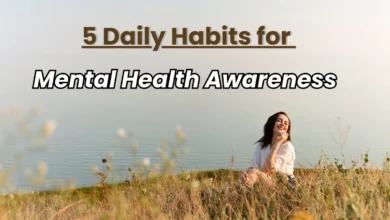Best Tech-Free Hobbies for Mental Health

Introduction: Can You Really Feel Better Without a Screen?
Let’s be honest: most of us spend more time staring at screens than sleeping. And while tech connects us, it also exhausts us. That’s where tech-free hobbies for mental health can work wonders—they offer a break for your brain and a breather for your soul.
If you’re reading this, chances are your eyes have already logged in a few hours of screen time today (yes, this blog counts too—but it’s a scroll with purpose, we promise).
Between doomscrolling, marathoning shows, and the “just-one-more-email” trap, our brains are overstimulated and under-rested. That’s why screen-free activities are more than just retro—they’re essential self-care. Let’s explore how trading pixels for paint, plants, or paper could be the mindful break your mind’s been craving.
1. Why mindful Hobbies Matter for Mental Health
Let’s face it—our brains weren’t built for 24/7 screen marathons. From endless scrolling to constant notifications, digital overload can quietly chip away at our peace of mind. But here’s the good news: embracing tech-free hobbies for mental health can help reset your brain without requiring a retreat into the wilderness.
Research continues to highlight the mental health benefits of digital detox. Regular breaks from screens—especially social media—are linked to:
- Better sleep quality
- Improved creativity
- Lower cortisol (a.k.a. your stress hormone)
- Increased mindfulness and mental clarity
Unplugging doesn’t mean going off the grid forever—it means giving your mind space to breathe, reflect, and refocus. And no, you don’t need to throw your phone in a lake… unless it’s really misbehaving.
2. Mindful Hobbies Without Apps: Screen-Free Ways to Feel Better
Let’s be honest—the irony of downloading five meditation apps and then never opening them isn’t lost on anyone. Here’s the good news: you don’t need tech to be mindful. In fact, screen-free activities for mental health often promote mindfulness better than any screen ever could.
Mindfulness is all about being fully present in the moment, and these offline activities make that easier than you think:
Try These:
- Gardening: You’d be surprised how soothing pulling weeds can be. Plus, the plants won’t judge your playlist.
- Drawing or Coloring: Those adult coloring books? They’re not just trendy—they’re practically therapy with crayons.
- Knitting or Crocheting: Repetitive motion, calming rhythm—basically a lullaby for your nervous system.
These tech-free hobbies act like a spa day for your brain—no eucalyptus-scented towels required.
3. Creative screen-free Activities for Mental Clarity
Let’s be real. Sometimes we just want to relax without being “productive”. That’s where calming, low-pressure activities come in.
Here are a few screen-free activities for mental clarity and stress relief:
- Reading a Paperback Book for Mental Wellness: Not a Kindle. A real, smell-the-pages book.
- Puzzles: Great for focus and distraction from spiraling thoughts.
- Journaling: Vent, reflect, doodle. It’s your page, your pace.
Each of these can help reduce anxiety and bring mental stillness, even if your handwriting hasn’t improved since 8th grade.
4. Creative Tech-Free Activities for Mental Clarity
Ever noticed how your best ideas come in the shower or during a walk? That’s no coincidence. When your mind isn’t being bombarded by notifications, it has room to think.
“Almost everything will work again if you unplug it for a few minutes… including you.” – Anne Lamott“
Creative, offline hobbies offer a cognitive and emotional boost. They also build confidence and offer a healthy sense of accomplishment.
Unleash Your Inner Artist:
- Painting or watercolors
- Writing poetry or short stories
- Playing a musical instrument
And don’t worry if you’re “not good” at them. These are hobbies, not job applications.
5. Active Screen-Free Activities for Mental Wellness
Moving your body is one of the most powerful ways to boost mental wellness—and you don’t need an app to do it.
Examples:
- Hiking or nature walks
- Dancing (yes, even alone in your kitchen)
- Yoga without YouTube—just you, your mat, and the sound of not buffering
These hobbies support both your mental and physical health, reduce stress, and give your brain a much-needed serotonin boost.
6. How to Build a Tech-Free Routine for Better Mental Health
If your phone is the first thing you reach for in the morning—before your toothbrush or even coherent thought—you’re definitely not alone. But here’s a wild idea: what if you swapped just 15 minutes of that screen time with a screen-free routine that supports your mental health?
You don’t have to overhaul your life—just start small:
Morning Ideas:
- Light stretching
- Reading a chapter of a book
- Making tea while actually enjoying the silenceLight stretching (yes, yawning counts)
These tiny habits might seem simple, but over time they build calming rituals that ease anxiety and bring your mind back to neutral before the chaos kicks in.
7. How to Find the Right Tech-Free Hobby for You
Not every hobby suits everyone’s style or schedule—and that’s okay. The key is to experiment and find what clicks.
Ask yourself:
- What relaxes me?
- When do I feel most creative or calm?
- What can I easily fit into my day?
Don’t be afraid to try something new, even if it feels awkward at first. Maybe gardening isn’t your thing, but journaling or hiking might be your perfect digital detox buddy.
8. How to Stay Consistent with Tech-Free Habits
Let’s be honest—ditching screens is easier said than done. Start small. Choose one hobby and schedule it just like a meeting. Even 10 minutes a day adds up.
Also, make it fun. Invite a friend for a walk or start a journal club. Track how you feel after each hobby. More relaxed? Less anxious? Let those feelings be your motivation.
9. Tech-Free Doesn’t Mean Boring
No one’s asking you to give up technology altogether. But carving out space for screen-free hobbies can make your life feel fuller, calmer, and more creative. It helps you reconnect—with yourself, your environment, and your mental well-being.
And if sitting in silence feels awkward at first, that’s okay. You’re rewiring your brain to enjoy quiet, intentional moments. Trust the process.
Final Thoughts: Your Brain Deserves a Break
Whether it’s journaling, gardening, reading, or dancing like no one’s filming it (because, finally, no one is)—tech-free hobbies can be powerful tools for improving mental health.
They help us slow down, breathe, and feel grounded in a world that’s constantly buzzing. So next time you’re feeling frazzled, anxious, or just over it, consider swapping screen time for you time.










Y888com is my go-to now! Super easy to use and find what I need. Happy with the site navigation skill. Visit them at y888com!
Heya i am for the first time here. I came across this board and I find It really useful & it helped me out a lot. I hope to give something back and aid others like you helped me.
Tried rummyjungleelogin the other day, and the whole login process was super quick and simple. That’s what you want, right? Fast access to games. Have a look: rummyjungleelogin
Okay, 813betlogin is new to me but not bad. The login process was simple enough, and I found what I was looking for quickly. I’d say give them a shot. See for yourself 813betlogin.
88iat… now that’s a unique name! The platform itself isn’t bad, pretty intuitive. Good option for a quick game. Don’t miss out 88iat.